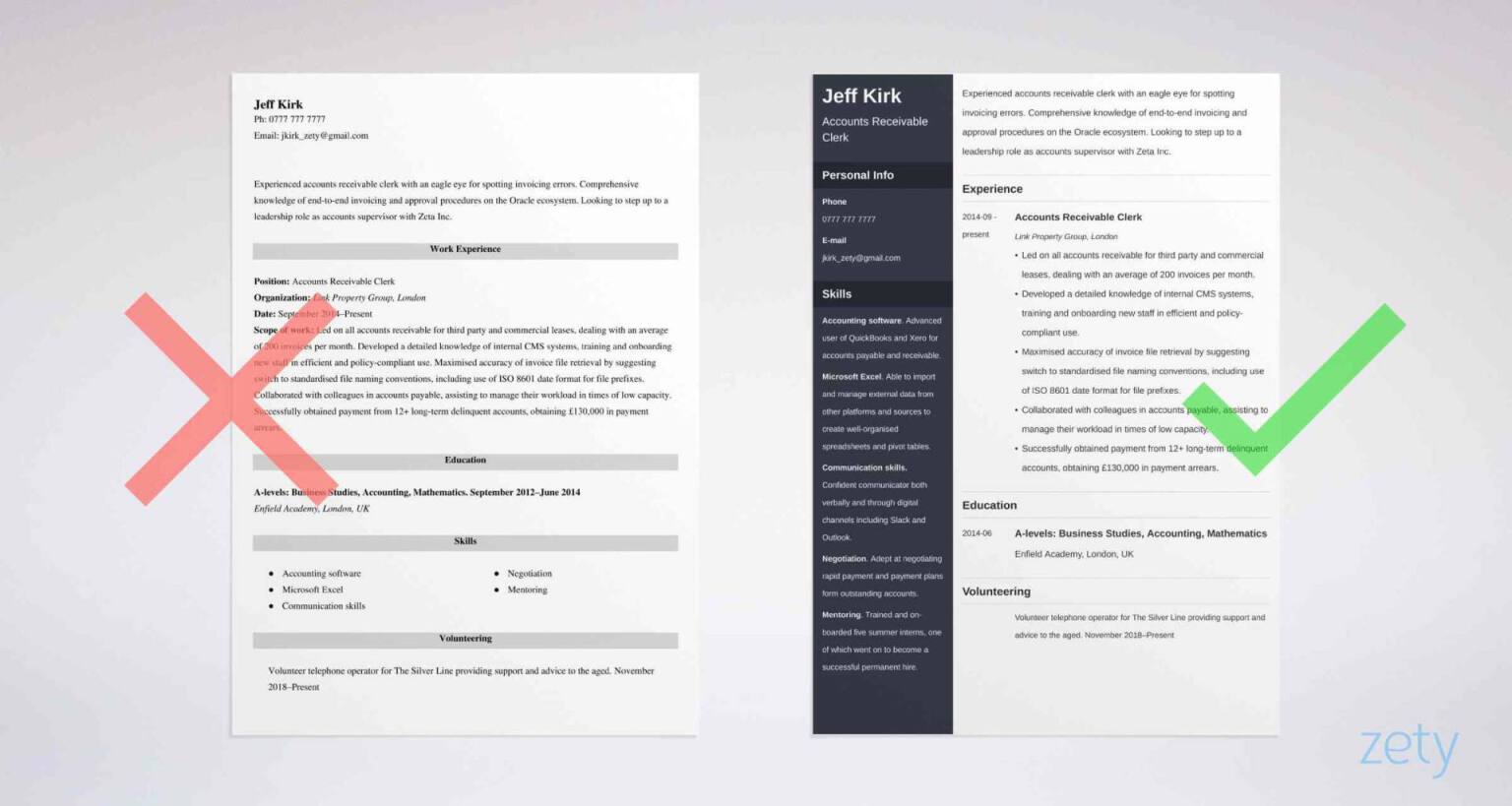50+ Essential Computer Skills for Your CV
Create your CV nowComputers and the workplace are inextricably linked. It’s fair to say that the vast majority of jobs now require some degree of computer skills. They’re abilities that are so ingrained into our working lives that it almost feels like stating the obvious.
And that familiarity breeds contempt. It’s all too easy to neglect computer skills on your CV. After all, hiring managers will just assume you’re sufficiently skilled and leave it at that right?
Wrong. You absolutely have to include computer skills on your CV. Not only that, you have to do it the right way if you want to convince hiring managers of your technological prowess. And we’re here to help you do just that.
Read on and you’ll learn what computer skills are, why they’re important and how to include them on your CV to maximise their impact. In short, this guide will make sure that your next job search ends with computer says yes.
Now let’s get computing.
Want to save time and have your CV ready in 5 minutes? Try our CV builder. It’s fast and easy to use. Plus, you’ll get ready-made content to add with one click. See 20+ CV templates and create your CV here.
Sample CV made with our builder—See more CV examples here.
And once you’ve learned how to make your computer skills shine, learn how to write a CV tailor-made to your career. See:
- Marketing CV Example & Guide
- Data Analyst CV Example & Writing Guide
- Warehouse Operative CV Example & Writing Guide
- Internship CV Example & Guide
- Pharmacist CV Example & Writing Guide
- Bartender CV Example & Writing Guide
- Engineering CV Example & Writing Guide
- Sales CV Example & Writing Guide
- Recruitment Consultant CV Example & Writing Guide
- School Leaver CV Example & Writing Guide
Sample Computer Skills on a CV
Jeff Kirk
Ph: 0777 777 7777
Email: jkirk_zety@gmail.com
Experienced accounts receivable clerk with an eagle eye for spotting invoicing errors. Comprehensive knowledge of end-to-end invoicing and approval procedures on the Oracle ecosystem. Looking to step up to a leadership role as accounts supervisor with Zeta Inc.
Work Experience
Accounts Receivable Clerk
Link Property Group, London
September 2014–Present
- Led on all accounts receivable for third party and commercial leases, dealing with an average of 200 invoices per month.
- Developed a detailed knowledge of internal CMS systems, training and onboarding new staff in efficient and policy-compliant use.
- Maximised accuracy of invoice file retrieval by suggesting switch to standardised file naming conventions, including use of ISO 8601 date format for file prefixes.
- Collaborated with colleagues in accounts payable, assisting to manage their workload in times of low capacity.
- Successfully obtained payment from 12+ long-term delinquent accounts, obtaining £130,000 in payment arrears.
Education
A-levels: Business Studies, Accounting, Mathematics. September 2012–June 2014
Enfield Academy, London, UK
Skills
- Accounting software. Advanced user of QuickBooks and Xero for accounts payable and receivable.
- Microsoft Excel. Able to import and manage external data from other platforms and sources to create well-organised spreadsheets and pivot tables.
- Communication skills. Confident communicator both verbally and through digital channels including Slack and Outlook.
- Negotiation. Adept at negotiating rapid payment and payment plans form outstanding accounts.
- Mentoring. Trained and on-boarded five summer interns, one of which went on to become a successful permanent hire.
Volunteering
- Volunteer telephone operator for The Silver Line providing support and advice to the aged. November 2018–Present
What percentage of jobs require computer skills?
The government has estimated that within the next 20 years 90% of all jobs will require ‘some element of digital skills’. That’s absolutely huge. Even if you don’t need computer skills right now, chances are you will in future. Let’s start exploring computer skills on your CV.
What are Computer Skills?
Computer skills are the knowledge and expertise needed to be able to use computers and the programs and technology associated with them. They range from the basics such as using word processors and email to advanced skills such as coding and the use of databases.
Computer skills are an example of hard skills on your CV and an easy way to categorise them is to divide them into two main categories. Hardware skills and software skills.
Hardware skills involve the physical use, setup and repair of computers. This can range from simply turning your computer on up to more complex tasks such as network setup and parts replacement. On the more complex end, hardware skills are dealt with by specialist technicians and the more simple end is taken as a given, and not worth mentioning on your CV.
So your focus should be on the more broadly relevant category of software skills, which involve the operation and use of programs and applications. These are the skills that employers are looking for when it comes to computer skills and they’re essential to being an effective employee in a 21st-century workplace.
Software skills themselves can be further broken down into a number of different categories. We’ll take a look at each of them in turn, giving you computer skills CV examples for each. Then you’ll learn how to include them on your CV.
1. Office Suites and Productivity Software
Productivity software does what it says on the tin. It’s software that’s designed to increase your productivity. Office suites are collections of bundled productivity software, and they’re the bread and butter of CV computer skills.
In April 2020, the most widely used office suite was Google’s G Suite at 55.2% and Microsoft Office in second place at 38.06%. But there’s much more to computer skills related to productivity software than just the two major office suites. Here’s a list of the most important ones.
- Microsoft Office including Excel, Word, Outlook, PowerPoint, OneDrive, OneNote, Teams, Yammer and SharePoint
- G Suite including Gmail, Drive, Docs, Sheets, Slides, Forms and Hangouts
- Other email management software
- Digital calendars (included in Outlook and as part of G Suite)
- Data management
- Instant messaging (e.g. Slack)
- Video conferencing (e.g. Zoom)
- Cloud-based backup and storage (e.g. Google Drive and Dropbox)
- Data entry software
Read more: Business Analyst CV Example and Writing Guide
2. SEO and Digital Marketing
Every business worth its salt needs an online presence and that online presence has to be fully optimised and reach as many people in the company’s target market as possible. By the end of 2020 the total UK advertising spend is estimated to be worth around 15.6 billion pounds. It’s big money, and SEO and digital marketing skills are hugely in demand. Here’s a short list of examples.
- SEO (Search Engine Optimisation), including Ahrefs and SEMrush
- Content Management Systems (CMS) including WordPress and Joomla
- Website Analytics including Google Analytics and VWO
- Email marketing
- Web page design and development
- Social media marketing and management
- Cascading style sheets (CSS) including Bootstrap and Foundation
- KPI tracking and monitoring
- SEM (Search Engine Marketing) including Google Ads
Read more: Web Developer CV Example and Writing Guide
3. Graphic Design
Creating distinct and compelling visual material is a core part of digital marketing, corporate image and more. Graphic design computer skills are more important than ever and a valuable addition to your CV. Here’s a list to show you there’s more to it than just photoshop.
- Adobe Suite, including Photoshop, Illustrator, InDesign and Creative Cloud.
- GIMP
- CorelDRAW
- QuarkXPress
- Lucidpress
- Microsoft Publisher
- Canva
- PicMonkey
- Inkscape
Read more: Graphic Designer CV Example and Writing Guide
4. Cybersecurity
Cybersecurity involves preventing computers, networks, electronic systems and data from being attacked and compromised. There’s a massive shortage of cybersecurity computer skills in the UK and it’s been reported that 48% of businesses have a basic skills gap. Meaning almost half of UK businesses lack staff who can carry out even basic cybersecurity measures. So demand is already through the roof and set to increase. Here are some examples for your computing skills on your CV.
- Data encryption standards
- Identity Access Management (IAM)
- Data Leak Protection (DLP)
- Endpoint Detection and Response (EDR)
- Cloud security
- Malware analysis
- Intrusion detection
- Penetration testing
Read more: Career Change CV Example and Writing Guide
5. Databases
No doubt you’ve heard that we live in the age of big data, everything from the email address you use to sign up for a service to your Facebook posts is hoovered up and put to use. Businesses need to store and access data effectively to succeed so database knowledge is another highly sought after CV computer skill. Here are a few examples of database computer skills for your CV.
- Microsoft Excel and Google Sheets
- XML database management
- MATLAB
- Hive
- Data analytics software including Tableau and Power BI
- SQL
Read more: Project Manager CV Example and Writing Guide
6. Programming
This is the classic image most of us have when we think of computer literacy skills. A programmer busily coding away. Unsurprisingly, knowledge of programming is a very good computer skill to have. According to Glassdoor three of the top ten most in-demand roles in the UK are jobs that require knowledge of programming languages. And every one of them would require broader knowledge of computer skills. Here’s a list of some of the most popular and in-demand programming languages:
- Java
- JavaScript
- C and C++
- Python
- Ruby
- Kotlin
- Swift
- PHP
- Go
- R
- HTML
7. Social Media
I don’t mean sneaking a cheeky Facebook post during a boring meeting. Social media computer skills are much more than just having fun. The top platforms are now used for all manner of marketing, promotion and customer communication. Here are just some of the computer skills associated with social media.
- Social media marketing including SEM (e.g. Facebook adverts)
- Customer communication via social media, particularly via Facebook, Twitter and LinkedIn
- Creating written and visual content for social media posts
- Leveraging social media to improve SEO (e.g. using images on Pinterest)
8. Accounting Software
Every workplace has to manage its accounts and finances. Skills in accounting and finance software are crucial to large corporations in the finance sector and small businesses alike. Here are some skills that’ll show you know how to balance the books.
- Advanced spreadsheet skills
- Payroll software e.g. Xero and KashFlow
- Accounting software e.g. FreshBooks, QuickBooks and Sage
9. Blockchain
It’s more than just Bitcoin. A survey by KPMG revealed that 48% of executives believe that blockchain will change the way they do business in the coming years. These are just a few of the skills that will be needed to implement blockchain and build legitimate business use cases.
- Tech skills, including coding in JavaScript, HTML and Solidity
- Data analysis
- Security skills
- Knowledge of platforms
- Knowledge of standards and ecosystems
That’s just a selection of the top computer skills for your CV. This list is not intended to be exhaustive. Any operation or task you complete using a computer involves computer skills. For example, operating point of sale systems or operating machinery via computer counts as CV computer skills too. Mechanics use computers every day to carry out repairs. As I said earlier, almost all professions require some level of basic computer skills.
And now that you know what computer skills look like, let’s see how to incorporate them into your CV.
Making a CV with our builder is incredibly simple. Follow our step-by-step guide, use ready-made content tailored to your job and have a CV ready in minutes.
When you’re done, Zety’s resume builder will score your resume and tell you exactly how to make it better.
How to Include Computer Skills on Your CV
You’ve just got an idea of how many different types of computer skills you could include on your CV. The problem is that you should only be writing a one or two-page CV. So how can you decide which computer skills to include and still stick to an acceptable CV length? Luckily, there’s an easy way to narrow it down.
- First, take the time to write a detailed list of all of your computer skills. Save it and add to it as your career and knowledge grows. Thinking back over your work experience, job duties and education will help prompt your memory.
- Then take a good look at the job advert for the role you’re targetting. Carefully note down any computer skills that are mentioned.
- Finally, compare the two lists and see what matches. Those are the points that are relevant and worth including in your CV.
A CV skills section should generally include 5–10 skills. And to be effective you should include a good mix of hard skills and soft skills. Computer skills being a hard skill. And there are a plenty of ways you can incorporate them into your CV. The first is to incorporate them into a standard CV skills section like so.
CV Computer Skills Example—General Skills Section
Skills
- Accounting software. Advanced user of QuickBooks and Xero for accounts payable and receivable.
- Microsoft Excel. Able to import and manage external data from other platforms and sources to create well-organised spreadsheets and pivot tables.
- Communication skills. Confident communicator both verbally and through digital channels including Slack and Outlook.
- Negotiation. Adept at negotiating rapid payment and payment plans form outstanding accounts.
- Mentoring. Trained and on-boarded five summer interns, one of which went on to become a successful permanent hire.
The trick is to add a sentence explaining how you’ve demonstrated that skill and/or your level of competence. It’s much more effective than just a plain list.
And as you can see, the first two skills are straightforward computer skills but here’s the clever part. The third skill would just look like a plain soft skill if you just listed it with no explanation. But explain that it includes Outlook and Slack and you’ve just made it a good computer skill for your CV.
Another option to put computer skills in your CV is to have a separate computer skills section. Depending on your skills and the job you’re targetting you could call it ‘computer skills’, ‘software skills’ or ‘programming skills’. Here’s an example.
CV Computer Skills Example—Specific Skills Section
Programming skills
- Java. Advanced,5+ years experience building Android apps in Java.
- HTML. Advanced, 5+ years experience in HTML coding for front-end development.
As with the previous example, this is made more impactful by adding the level of competence and a brief description of the type of work carried out using that programming language.
But this isn’t the only place you can incorporate computer skills on your CV. Here are some more computer skills examples that show how you can pepper them throughout your CV sections.
CV Computer Skills Example—Personal Profile
Innovative architect with 10+ years of experience designing commercial spaces. Advanced AutoCAD user with a flair for rapidly creating mockups based on client instructions. Seeking to further develop my career in commercial office design as Senior Architect with McMullins & Co
Your CV personal profile is the first section of your CV and it’s a particularly effective place to add in vital computer skills. By mentioning their AutoCAD skills here this candidate has ensured that this is one of the first pieces of information the recruiter sees. So it’s a particularly good place to include computer skills that are considered crucial to the job.
Read more: How to Write Your CV Summary
CV Computer Skills Example—Work Experience Section
Business Analyst
Energi Corporation, London
December 2017–Present
- Utilised SQL to build rules-based filtering for more efficient analysis of deficiencies in existing processes.
- Created wireframes of analytical dashboards using Adobe Xd in order to work more efficiently with developers and more rapidly develop working tools and systems.
It’s fair to say that your work experience section is the keystone of your CV structure and another great place to demonstrate how proficient your computer skills are. As a business analyst, this candidate needs advanced computer skills and they’ve showcased them perfectly here.
The key to effectively incorporating computer skills in your CV work experience section is to structure your bullet points effectively. Start them with CV action words and structure them by using accomplishment statements. That way you can prove how you use your computer skills to get results.
CV Computer Skills Example—Additional Sections
Hobbies and Interests
- Raspberry Pi hobbyist. Projects include hosting an Apache server and setting up the device as a VPN server.
If you’re writing a graduate CV or a school leaver CV your work experience section may be a little thin. But as you’ve just seen, computer skills can be added into your additional CV sections as well. Your CV hobbies and interests section isn’t just there for fun, it’s a valuable way of showing skills and abilities that might otherwise be missed.
Another way you can add details of your computer skills is your CV education section. If you’re still studying or you’ve recently graduated you can add details of individual subjects or modules you’ve studied or projects you’ve undertaken. It’s yet another way of showing you have good computer skills.
And if you feel your computer skills really aren’t up to scratch, don’t worry, we’ll cover that next.
Read more: How to Write Your CV Work Experience Section
How to Improve Your Computer Skills
You might feel overwhelmed after reading this guide and feel like you don’t have the computer skills necessary to succeed. But it’s never too late to pick up some basic computer skills and give your CV a boost in the process.
First, check with your employer if they offer any training courses. Most large companies recognise the importance of upskilling staff and are able to provide you with a basic computer skills course. The government also offers career skills and training with a strong focus on digital skills.
There are private providers too. Take a look at the courses offered by the Open University, Udemy, Coursera and edX. There’s a wealth of courses, from basic computer skills all the way up to more complex topics as well.
The very fact that we live in an age where computer skills are essential makes it easy to improve them. So get out there and get learning and soon you’ll have proficient computer skills too.
And one more tip. Avoid using a badly laid out free CV template. Your computer skills will look much better in a professionally designed Zety template.
For a more general guide on CV Skills, read more here: Key Skills to Put on a CV: Best List of Examples
Plus, a great cover letter that matches your resume will give you an advantage over other candidates. You can write it in our cover letter builder here. Here's what it may look like:
See more cover letter templates and start writing.
Key Takeaways
Having good computer skills is rapidly becoming a non-negotiable requirement for the majority of career paths. Proving you have proficient computer skills on your CV is absolutely essential if you want your application to be taken seriously.
Make sure you weave in computer skills throughout your CV, it’s not just a case of having to list them in your skills section. And if you’re lacking in basic computer skills then take advantage of the training available.
Thanks for reading. If you’ve got any questions at all about including computer skills on your CV then please ask me in the comments section and I’ll get back to you.
About Zety’s Editorial Process
Our editorial team has thoroughly reviewed this article to ensure it follows Zety’s editorial guidelines. Our dedication lies in sharing our expertise and providing you with actionable career advice that offers you real value. Every year, the quality of our content attracts 40 million readers to our site. But that’s not all – we conduct original research to gain a detailed understanding of the labour market. We take pride in being cited by top universities and leading media outlets in the UK and worldwide.
Sources
- https://www.statista.com/statistics/983299/worldwide-market-share-of-office-productivity-software/
- https://www.statista.com/statistics/283009/digital-advertising-spending-in-the-united-kingdom-uk/
- https://www.gov.uk/government/publications/cyber-security-skills-in-the-uk-labour-market-2020/cyber-security-skills-in-the-uk-labour-market-2020
- http://www2.lawrence.edu/dept/student_dean/career/Planning%20Guide/Resumes/Action%20Verbs%20for%20Resumes.pdf
- https://unihub.deakin.edu.au/Uploads/EmailAttachments/BN7FskVjjyEddPeULVL_dg2/Writing-an-Effective-Accomplishment-Statement.pdf
- https://www.gov.uk/career-skills-and-training






